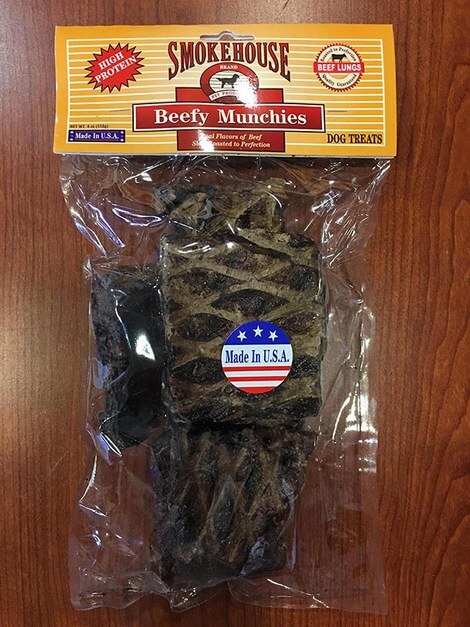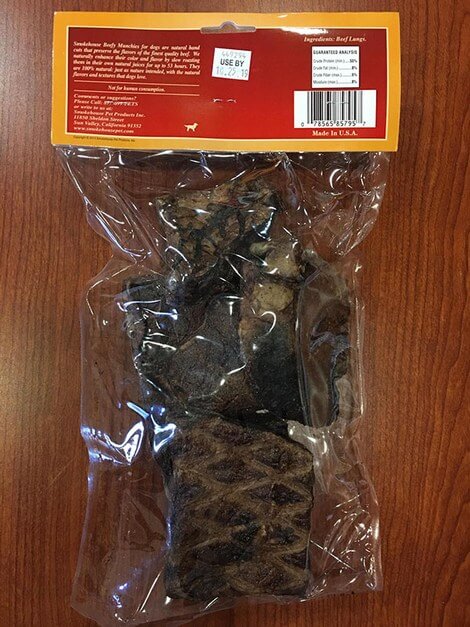What’s Recalled?
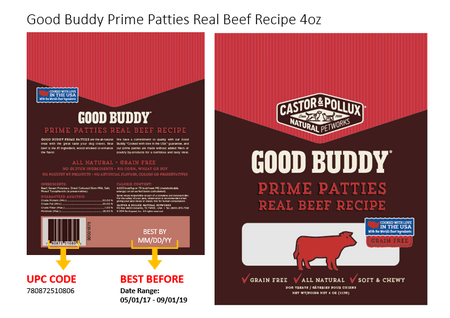
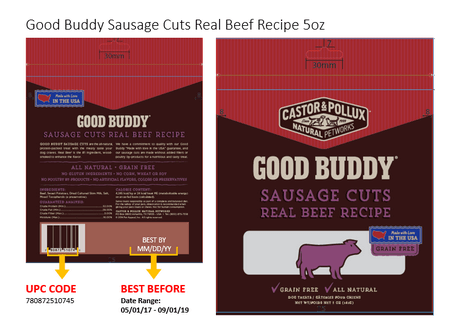
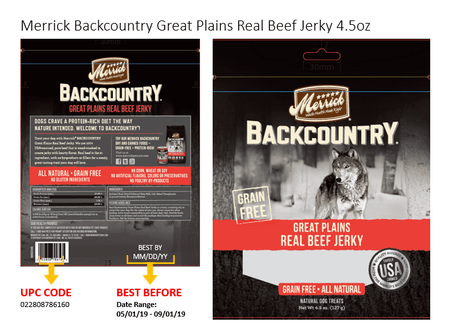
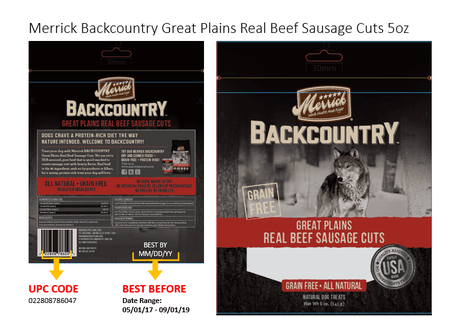
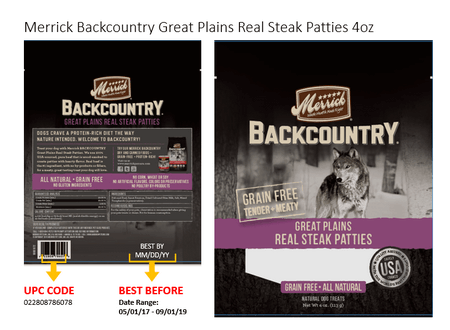
Batch Information
The voluntary recall is limited to the production codes listed below.
To locate the production code, consumers should look on the lower back of the treat bag.
No other production codes, sizes or varieties of these products are affected. The voluntary recall covers only specific production codes of the following beef treat products:
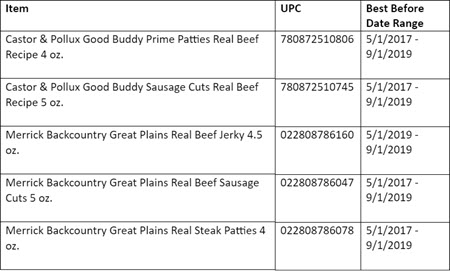
About Beef Thyroid
Dogs consuming high levels of beef thyroid hormone may exhibit the following symptoms: increased thirst and urination, weight loss, increased heart rate and restlessness.
These symptoms may resolve when consumption decreases.
If a dog consumes high levels for a long period of time, these symptoms may increase in severity and may include vomiting, diarrhea and rapid or labored breathing.
If your pet has consumed the product listed and has exhibited any of these symptoms, please discontinue feeding and contact your veterinarian.
What Caused the Recall?
This potential health risk was brought to Merrick’s attention as a result of the FDA sharing one consumer complaint where the dog’s health was temporarily impacted while eating Merrick Backcountry Great Plains Real Beef Jerky 4.5 ounce.
The dog’s health improved and fully recovered after discontinuing consumption of the treat.
Message from Merrick
Pet owners should know there is limited risk given treats are not intended for full nutrition and should only be occasionally consumed.
However, out of an abundance of caution and to maintain trust with our consumers, we are withdrawing all potentially impacted product.
We have not received any similar reports to date from consumers about issues with these products.
As a company of pet owners and pet lovers, we know our consumers place a tremendous amount of trust in us when their pet uses our products.
The quality and safety of our products are the top priority for our company.
We apologize to our retail customers and consumers and sincerely regret any inconvenience and concerns caused by this voluntary recall.
We are working with the U.S. Food and Drug Administration on this voluntary recall and will cooperate with them fully.
What to Do?
If you have product, please contact Merrick at 800-664-7387 from 8 am to 5 pm Central Time Monday through Friday.
Or by email at customerservice@merrickpetcare.com so we can provide a refund.
Or visit Merrick’s website and fill out a form: www.merrickpetcare.com/customerrelations.
No other Merrick or Castor & Pollux products are impacted. These treats are distributed in the U.S. through pet specialty, grocery and online retailers with limited distribution in Canada.
For more information visit www.MerrickPetCare.com.
U.S. citizens can report complaints about FDA-regulated pet food products by calling the consumer complaint coordinator in your area.
Or go to https://www.fda.gov/petfoodcomplaints.
Canadians can report any health or safety incidents related to the use of this product by filling out the Consumer Product Incident Report Form.
Get Dog Food Recall Alerts by Email
Get free dog food recall alerts sent to you by email. Subscribe to The Dog Food Advisor’s emergency recall notification system.




